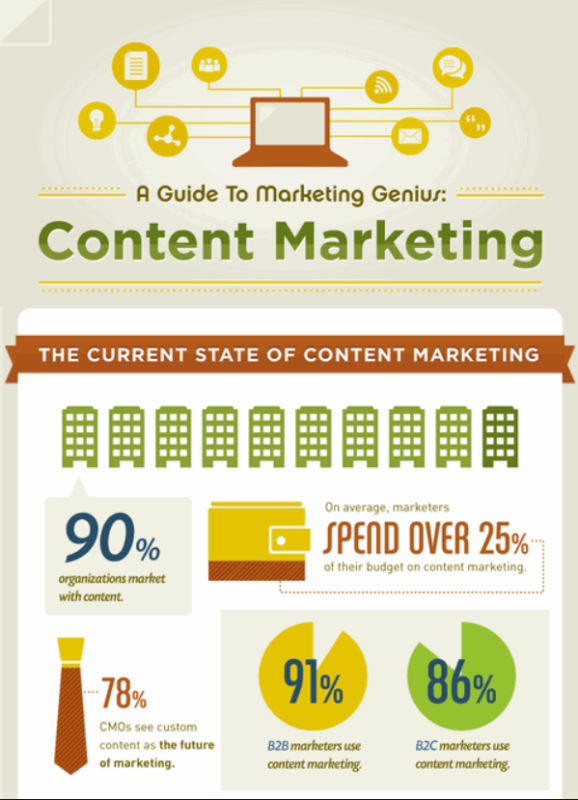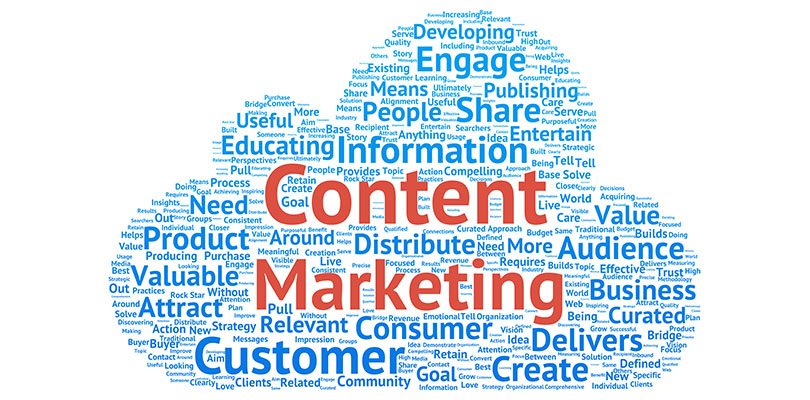Content Marketing for E-commerce
15 Reasons Your “Amazon FBA ‘Brand’” Won’t Survive Without Content Marketing
So, you’ve defied the odds and you’ve succeeded to establish your private label brand via Amazon FBA as the primary sales channel. Now what? Maybe you’re doing fairly well, but still searching for those extra nuggets of tactical knowledge that might help to drive traffic and boost search rank & sales on Amazon. While making incremental improvements to your Amazon FBA effort is a valid goal for improving short term profitability, you may consider that your valuable time and effort should be redirected to a more long term solution to the problem of ultra-competitiveness that permeates the Amazon marketplace. What is going to make your Amazon FBA effort and overall brand competitiveness sustainable in the long run? As it turns out, an absolutely critical key driver to sustainable and profitable existence on the Amazon marketplace is your off-Amazon marketing strategy – particularly the area content marketing.
Content marketing is a strategy that involves creating and sharing online material (such as articles, videos, blogs, and to some degree social media posts) that stimulate interest in a private label brand’s products. There is an art to content marketing though – an approach that is necessary to have any chance of success. The fact is that any selling activity via content marketing really must be done without actually promoting the brand outright. Content marketing, instead, focuses on offering valuable information, insights, education and perspectives to your target consumer segment with an emphasis on relationship-building and overall good will – brands truly need to authentically attempt to help solve the target market segment’s problems that plague certain areas of their lives.
In this ultra-competitive age, a private label “FBA brand” can’t expect to flourish into a sustainable company solely from sales derived from Amazon Sponsored Ads and organic sales alone. Content marketing has become not a choice in your marketing strategy, but an essential element of continued success. Here’s 15 reasons why private label sellers who are serious about sustainability MUST adopt content marketing into their strategy:
#1 Selling Solely on Amazon Leaves You With no Real Assets
Think about it. What concrete asset do you have using the Amazon platform and nothing else? To be most successful, you’ve got to think of channels beyond for promotion. Developing your own brand and supporting it through a content-oriented website is an imperative step because it helps to stake your own piece of online real estate. If built and maintained properly, this website can be around for years to come – with time, brand owners and managers will find that the content marketing that’s driving off-Amazon sales actually contributes to brand equity – a metric relevant if original owners choose to make an exit and sell the company at some point.
#2 Well Optimized Articles Can Draw FREE Traffic for Years From Search Engines
 Building off of point #1, useful, relevant articles garnish a permanent place in the online community. The right content, formatted correctly, can be just as useful to consumers 5 years down the road, compared to the day it was published. These articles can also continually be tweaked and adjusted to account for up-to-date data and research, which can extend that relevancy decade into the future. Imagine the ROI you could have with a high search rank granted by Google, Bing and Yahoo because your website / blog simply chose to engage with your audience now – once your page is indexed as one of the most popular & helpful articles online, it will most likely hold that position that generates free traffic for years to come (unless your competitors start to outperform you in their content marketing efforts).
Building off of point #1, useful, relevant articles garnish a permanent place in the online community. The right content, formatted correctly, can be just as useful to consumers 5 years down the road, compared to the day it was published. These articles can also continually be tweaked and adjusted to account for up-to-date data and research, which can extend that relevancy decade into the future. Imagine the ROI you could have with a high search rank granted by Google, Bing and Yahoo because your website / blog simply chose to engage with your audience now – once your page is indexed as one of the most popular & helpful articles online, it will most likely hold that position that generates free traffic for years to come (unless your competitors start to outperform you in their content marketing efforts).
#3 Websites Gather and Fill Customer Data Gaps After Content Attracts Suitable Audience
After your website is up and running, the content creation begins and those future articles / videos you’re working on will be the pathway leading customers from a search engine, to your website, to a lead magnet. Once viewing your website’s content, subscription boxes and opt-in opportunities will help to build a strong email list, of specific, interested consumers. Amazon forbids the option to connect with buyers in that respect. Therefore, a continuous, relevant content marketing effort will ultimately result in the most important asset a company could ever have – knowledge of who the customer actually is! Amazon won’t allow you to build a customer base that the brand actually owns – content marketing does!
#4 Engaging With Customers Based on THEIR Own Interests Builds Brand Loyalists
 This one may seem like a no-brainer but is key to why content marketing is necessary for any brand, especially a private label. Once you peak the interest of a potential consumer via your quality content, you now have the opportunity to engage with them in a meaningful, and lasting way. The brand will know who is buying your product and for what purpose because content that drives sales can be tracked, and consumer insights can be gathered as a result of honest, and sincere content! In turn, while you’re gaining specific understanding and reinforcement about why your customer buys, once you’ve created that all-start content piece that resonates with your audience, you’ve now had an impact that will last long into the future – your content has communicated to the audience that you actually care about them. When a consumer knows that a brand authentically cares, return shoppers are likely, customer acquisition costs fall and brand loyalty and equity rise.
This one may seem like a no-brainer but is key to why content marketing is necessary for any brand, especially a private label. Once you peak the interest of a potential consumer via your quality content, you now have the opportunity to engage with them in a meaningful, and lasting way. The brand will know who is buying your product and for what purpose because content that drives sales can be tracked, and consumer insights can be gathered as a result of honest, and sincere content! In turn, while you’re gaining specific understanding and reinforcement about why your customer buys, once you’ve created that all-start content piece that resonates with your audience, you’ve now had an impact that will last long into the future – your content has communicated to the audience that you actually care about them. When a consumer knows that a brand authentically cares, return shoppers are likely, customer acquisition costs fall and brand loyalty and equity rise.
#5 Content Will Significantly Improve Website Conversion Rates
As an “Amazon FBA seller”, you wear the hat of most positions in your own company. One of them being Chief Marketing Officer. For this reason you need to be concerned about marketing buzzwords such as conversion; or the percentage of people who visit your site and become paying customers. By offering videos, blogs, FAQ articles etc., you are allowing your site to become a place that filters and qualifies visitors such that when they ultimately have the option to buy after consuming content they’re already predisposed to making a purchase. Humans are lazy by nature – if a consumer can come to your website for the information they need AND be reassured that your product is the best option for them, then there’s no reason they wouldn’t click on an add or button that puts them on the relevant sales page on your ecommerce site. You’ll have the ability to teach your reader within the content what you want them to do next through a clear call to action. The audience-member found your site of their own will, so they have already passed through a general pre-qualification step already – it is natural to offer to such a site-visitor an option to purchase a product that’s related to the content. Make the next step easy – phrases, such as “explore the shop tab on our site for the (x) product that was just mentioned,” can be included in your content. If you’re not sure where to start, or simply don’t have the time visit https://www.privatelabelnitrous.com/full-service-platform-management/ and leave the content management to the experts.
#6 Small Businesses Can’t Afford Not to Apply Cost Effective Marketing Principles
 If it’s affordable, and effective, why not focus on it? According to demandmetric.com, content marketing costs about 62% less than traditional marketing, while generating 3 times as many leads. Maintaining cost effective marketing efforts is necessary while running any small business – especially private label brands. Your brand may not have the marketing budget of larger corporations, so how the marketing budget is spent can directly lead to high growth or quick death of the business.
If it’s affordable, and effective, why not focus on it? According to demandmetric.com, content marketing costs about 62% less than traditional marketing, while generating 3 times as many leads. Maintaining cost effective marketing efforts is necessary while running any small business – especially private label brands. Your brand may not have the marketing budget of larger corporations, so how the marketing budget is spent can directly lead to high growth or quick death of the business.
#7 Content is King – Qualitative Benefits & Indirect Sales
This cannot be stressed enough. More than ever, consumers are looking for relevant, honest evaluations, and general knowledge of products / services before buying. Consumers are more than fed up with in-your-face advertising techniques that feel ingenuine, and underhanded. They’re instead attracted to the transparency and authenticity of a brand. Making sure content is not only distinguishable from information already out there, but serves a purpose should be top priority. Content marketing aims to build a relationship with consumers rather than always just pushing for a sale. If a hard sell isn’t made through a piece of content – just a brief mention of a product that exists that could fit perfectly into an audience-member’s life could easily stimulate an untraceable sale – people read articles and then go to Amazon to search for an item to buy with Prime all the time. Therefore, whether or not amazing conversion can be seen from a piece of content, it is still likely that if the content is relevant to someone, it will somehow cause a sale – most likely through Amazon (what you think is an organic sale could actually be one inspired by content marketing).
#8 Consistent Content Forges Trust
 Content marketing builds trust in ways that other marketing tactics cannot. Building trust over time leads to consumers paying attention and truly listening to your brand’s voice. If you’re consistently posting information useful for consumers, they will recognize you as the expert, and more importantly, an insightful resource when making buying decisions. Creating and fostering trust is a feat most sellers who solely rely on the Amazon marketplace will not accomplish – just based on the sales-heavy nature of the platform. Distinguishing yourself as a trust-worthy brand will give you the upper hand and capture customers that the competition is ignoring (think Blue Ocean).
Content marketing builds trust in ways that other marketing tactics cannot. Building trust over time leads to consumers paying attention and truly listening to your brand’s voice. If you’re consistently posting information useful for consumers, they will recognize you as the expert, and more importantly, an insightful resource when making buying decisions. Creating and fostering trust is a feat most sellers who solely rely on the Amazon marketplace will not accomplish – just based on the sales-heavy nature of the platform. Distinguishing yourself as a trust-worthy brand will give you the upper hand and capture customers that the competition is ignoring (think Blue Ocean).
#9 Content Builds Brand Awareness & Recognition
It’s fact that consumers prefer to get to know a company via articles and videos rather than ads. Creating and building a brand’s reputation through content is very possible. If consumers can get an idea of what the brand stands for behind the label, they will be more willing to consider your brand in their purchase decision process. When selling a private label brand you also encounter the necessary evil of contending with product competitors with the exact same manufactured products, with possibly lower prices. What will make you stand out from these other stores? Brand recognition. If a consumer can correctly identify your product with the logo they might have seen within your content site, they will be more likely to choose that product regardless of a few dollars price difference. All things considered, even subconsciously, most consumers would rather purchase what they recognize rather than take a chance on what they don’t.
#10 Content Nurtures Creativity + Some
 Once achieving recognition, there are few things worse than being pegged as
Once achieving recognition, there are few things worse than being pegged as
the “outdated, out-of-touch brand.” Creation of basic content such as videos and infographics allow consumers to connect on a visual level and be a part of the constant evolution of the brand. These options offer a stimulating alternative to their ancient, dinsosaur-esq counter parts such as magazine and newspaper ads. Consumers are smarter, and more interested than ever – it’s wise to recognize this fact and embrace it! An audience will truly appreciate when all the pertinent info is provided, at their fingertips, in a handy format.
#11 Useful Content Will Generate Organic Online Sharing (possibly VIRAL)
Assuming your content has value (it always should), not only will you eventually garner organic search engine traffic, the brand will open itself up to the possibility of being shared by followers on social media. Consumers want to share tips and tricks with their friends / family who share similar psychographic profiles – their friends may then share it again, and so the viral process begins. If you’re creating high-quality content, it’s going to be spread through social media without your control. HubSpot suggests that an astounding 90% of people believe brand recommendations from friends. Word-of-mouth is an incredibly powerful asset that can make, or break a brand.
#12 Content Leads to an Audience of Salespeople
Related to point #11, ideally, with the right content your audience can actually sell your brand for you. One customer recommending your product to a friend or  group of friends might not only create word-of-mouth recognition, but actually convert new leads to consumers. Your consumers should always be considered an integral part of any marketing strategy – they can often become your best salespeople.
group of friends might not only create word-of-mouth recognition, but actually convert new leads to consumers. Your consumers should always be considered an integral part of any marketing strategy – they can often become your best salespeople.
#13 Content Creation is SUCH a Simple Yet Valuable Process
Start elementary. There’s no need to spend a ton of money on content creation when there are an ample amount of free resources available. Tools such as Canva, Infogram, and Skitch make designing visual content streamlined! While other tools such as Evernote and Blog Topic Generator focus on the ever daunting written aspects of content. Allow these sites to do the heavy lifting, and focus on making sure your content is relatable, and beneficial.
#14 Content Calendars Are Not Difficult to Create and Follow
A content calendar is a plan for all content marketing activity throughout the year. Content calendars give insight into how content will be distributed, while being able to maintain a clear vision into the unity of the content. Never set one up  before? No problem. Content calendars can be created in a few easy steps. First, identify topics, audiences, and weighting of content distribution between audiences. Next, take an inventory of your content assets. Figure out which previous blog articles, data, or training material can be repurposed into a blog, video, or infographic. And of course, decide what new content needs to be created. Then it’s time to schedule, publish, and promote your content. Once completed, the analysis begins. Review the visits, engagement, and revenue stats generated from the content and decide which posts are working well and which need to be adjusted accordingly. But wait, how am I measuring this, you ask? (Hint, go to point #15…)
before? No problem. Content calendars can be created in a few easy steps. First, identify topics, audiences, and weighting of content distribution between audiences. Next, take an inventory of your content assets. Figure out which previous blog articles, data, or training material can be repurposed into a blog, video, or infographic. And of course, decide what new content needs to be created. Then it’s time to schedule, publish, and promote your content. Once completed, the analysis begins. Review the visits, engagement, and revenue stats generated from the content and decide which posts are working well and which need to be adjusted accordingly. But wait, how am I measuring this, you ask? (Hint, go to point #15…)
#15 The Tools Needed to Make Content Marketing a Success Are Readily Available
Content marketing analytics tools provide insight into specific metrics that can be then used to help track your brand’s goals. The greatest benefit from utilizing these tools is that they provide you with concrete data and numbers that can be leveraged to determine whether your content marketing efforts are actually paying off. A few important metrics you should track are: views, engagements, shares, cost-per-engagement, and reach. These values provide an overall, general understanding regarding the performance of your campaign. A handful of the top content marketing analytics & execution tools to consider would be:
–Google Analytics, which provides the amount of traffic your content is receiving, who the audience is, where the traffic is coming from, and the amount of time people are staying on your site.
-Buzzsumo, which allows you to analyze specific content marketing topics and measure how one type, or topic might perform on a certain platform. It also can be used to see which content topics are currently most popular.
-Hootsuite, a social media management platform that not only allows for mass scheduling and posting of content, but optional follow-up analytics of the content.
>>Click each logo below to dive into the world of content marketing analytics<<
Takeaway:
Overall, selling alone on Amazon is no longer enough for your brand to sustainably prosper. Instead, try investing your time in creating content such as blogs, articles, videos, and infographics that will establish your place on the internet as a leader and expert. By doing so, you can build an active online community that revolves around your brand – a community based on trust and maintained by continuously relevant engagement and comprised of loyal customers who sell for you by sharing your helpful content with others who will eventually become known, repeat buyers – the ultimate asset that cannot be attained if you limit yourself to being just another “Amazon FBA Seller.”





